Leonard Bernstein, New York Philharmonic - Copland: Appalachian Spring Ballet Suite, El Salón México, Billy the Kid Suite, Four Dance Episodes from Rodeo (2003) [SACD]
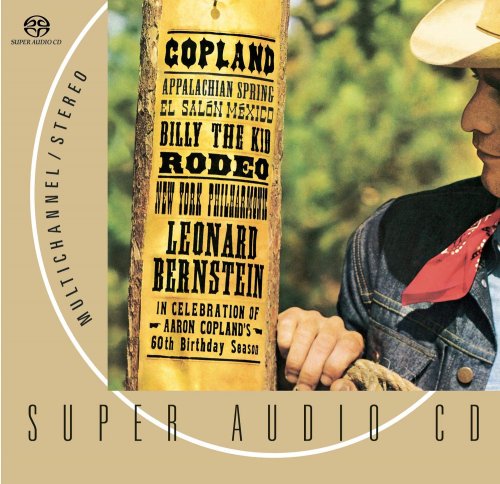
Artist: Leonard Bernstein, New York Philharmonic
Title: Copland: Appalachian Spring Ballet Suite, El Salón México, Billy the Kid Suite, Four Dance Episodes from Rodeo
Year Of Release: 2003
Label: Sony
Genre: Classical
Quality: DSD64 image (*.iso) / 2.0, 5.1 (2,8 MHz/1 Bit)
Total Time: 1:14:27
Total Size: 4.36 GB
WebSite: Album Preview
Tracklist:Title: Copland: Appalachian Spring Ballet Suite, El Salón México, Billy the Kid Suite, Four Dance Episodes from Rodeo
Year Of Release: 2003
Label: Sony
Genre: Classical
Quality: DSD64 image (*.iso) / 2.0, 5.1 (2,8 MHz/1 Bit)
Total Time: 1:14:27
Total Size: 4.36 GB
WebSite: Album Preview
Appalachian Spring/Very Slowly
Appalachian Spring/Allegro
Appalachian Spring/Moderato
Appalachian Spring/Fast
Appalachian Spring/Subito Allegro
Appalachian Spring/As at first (slowly)
Appalachian Spring/Doppio movimento
Appalachian Spring/Moderato Coda
El Salón México
Billy the Kid (Orchestral Suite)/Introduction. The open Prairie
Billy the Kid (Orchestral Suite)/Street in a Frontier Town
Billy the Kid (Orchestral Suite)/Mexican Dance and Finale
Billy the Kid (Orchestral Suite)/Prairie Night (Card game at night)
Billy the Kid (Orchestral Suite)/Gun Battle
Billy the Kid (Orchestral Suite)/Celebration (after Billy’s capture)
Billy the Kid (Orchestral Suite)/Billy’s Death
Billy the Kid (Orchestral Suite)/The open Prairie again
Rodeo (Four Dance Episodes)/Buckaroo Holiday. Allegro con spirito
Rodeo (Four Dance Episodes)/Corral Nocturne. Moderato
Rodeo (Four Dance Episodes)/Saturday Night Waltz. Introduction – Slow Waltz
Rodeo (Four Dance Episodes)/Hoe-Down. Allegro
The Copland SACD is outstanding in every way. Bernstein always was one of the finest interpreters of the composer’s music, and this CD contains four of his most popular works. Originally these were included on two LPs (which are reproduced on the front and back covers) with only the Dance from Music for the Theatre missing. These are dynamic performances beautifully played by the NYP. It seems odd that Billy the Kid was recorded (Oct. 20, 1959) in Symphony Hall in Boston instead of the two usual recording sites for the orchestra, Avery Fischer Hall or Manhattan Center. However, producer John McClure and his crew did a superb job in capturing the warm acoustics of the famed hall. It’s interesting to compare this sound with the other “surround sound” recording made in Symphony Hall, with the Boston Symphony Orchestra, which can be heard on a Pentatone CD recorded in January 1976 with Sir Colin Davis conducting Mendelssohn’s Symphony No. 4. Of course Copland’s score with its explosive percussion is more of a sonic showpiece than the rather gentle Mendelssohn, but both recordings have very natural sound and presence; I think the Pentatone issue has a more natural multi-channel effect. McClure and his staff also were successful recording the three other works (Appalachian Spring, Oct. 9, 1961; El Salón México, May 20, 1961; Rodeo, May 2, 1960) in Manhattan Center. Again it seems the orchestra is in front with only ambient sound coming from the other speakers—a very pleasing effect. Probably the greatest gain in this SACD release is the cleaner definition of sound throughout because of the ability of SACD to convey more of sound on the original tapes.
Review from Russell at SA-CD.net
Another true classic recording has arrived on SACD, courtesy of Sony. This time it’s Leonard Bernstein’s vital and inspired interpretations of four Copland favorites: Appalachian Spring, Billy the Kid, Rodeo, and El Salon Mexico. Lenny is fully in his element here, and IMO these performances, recorded in 1959-61, have never been equalled for spontaneity, spunk, and rhythmic snap, even bettering the composer’s own recordings (also on SACD). I compared the sound of this new MCH SACD (in stereo) to the SBM’d CD in Sony’s ‘Bernstein Century’ series, and the SACD beats it handily. The CD sounded quite good actually, but the SACD was much more open and three-dimensional, with a wider, deeper soundstage and a more palpable presence. The SACD has a brighter and more extended treble than the CD (and it’s brighter than what we usually hear from present-day orchestral recordings), but it never becomes harsh or strident. Being 40+ year-old recordings, there’s also a trace of hiss, but it’s not intrusive.
IMO this is the most impressive Sony SACD reissue so far, and an outstanding example of how wonderful early stereo recordings can be; perhaps not quite equal to what RCA and Decca were doing then, but it still has many of the right qualities (and it’s certainly lots better than what Columbia would produce later on)
Review from Russell at SA-CD.net
Another true classic recording has arrived on SACD, courtesy of Sony. This time it’s Leonard Bernstein’s vital and inspired interpretations of four Copland favorites: Appalachian Spring, Billy the Kid, Rodeo, and El Salon Mexico. Lenny is fully in his element here, and IMO these performances, recorded in 1959-61, have never been equalled for spontaneity, spunk, and rhythmic snap, even bettering the composer’s own recordings (also on SACD). I compared the sound of this new MCH SACD (in stereo) to the SBM’d CD in Sony’s ‘Bernstein Century’ series, and the SACD beats it handily. The CD sounded quite good actually, but the SACD was much more open and three-dimensional, with a wider, deeper soundstage and a more palpable presence. The SACD has a brighter and more extended treble than the CD (and it’s brighter than what we usually hear from present-day orchestral recordings), but it never becomes harsh or strident. Being 40+ year-old recordings, there’s also a trace of hiss, but it’s not intrusive.
IMO this is the most impressive Sony SACD reissue so far, and an outstanding example of how wonderful early stereo recordings can be; perhaps not quite equal to what RCA and Decca were doing then, but it still has many of the right qualities (and it’s certainly lots better than what Columbia would produce later on)
![Leonard Bernstein, New York Philharmonic - Copland: Appalachian Spring Ballet Suite, El Salón México, Billy the Kid Suite, Four Dance Episodes from Rodeo (2003) [SACD]](https://www.dibpic.com/uploads/posts/2020-09/1600067293_511nice7nql.jpg)

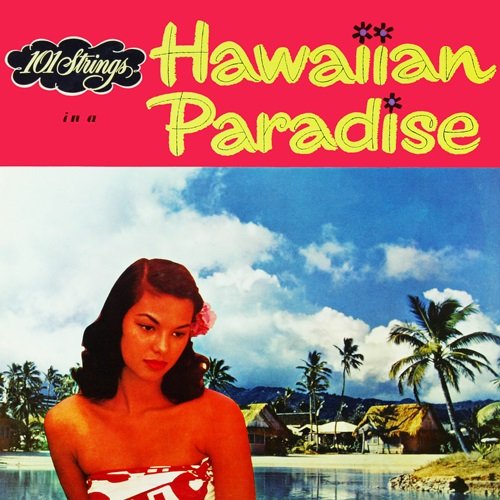
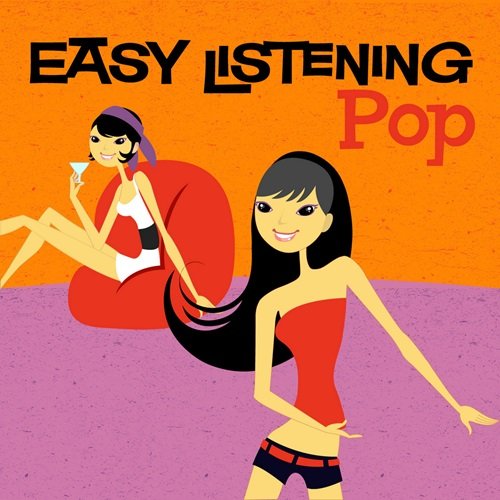
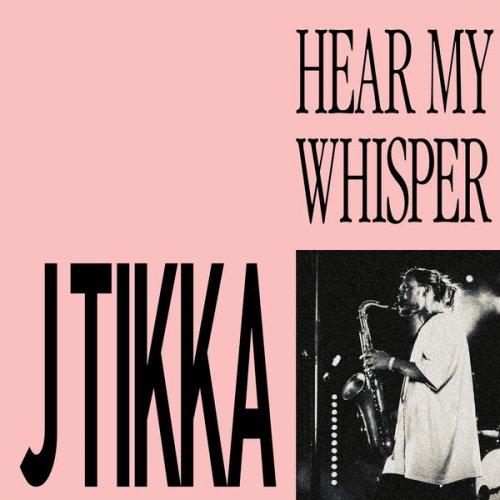
![Eddie "Lockjaw" Davis - Land Of Dreams (1982) [Vinyl] Eddie "Lockjaw" Davis - Land Of Dreams (1982) [Vinyl]](https://www.dibpic.com/uploads/posts/2026-01/1767962313_5.jpg)
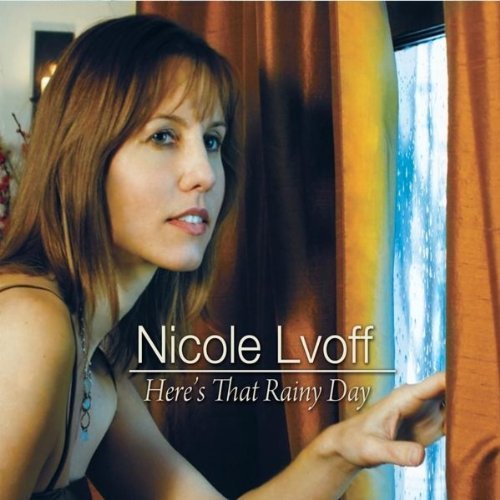
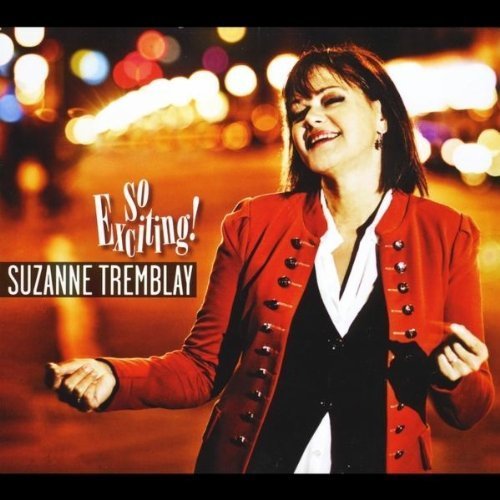

![Brad Walker - A Sliver of Catharsis (2026) [Hi-Res] Brad Walker - A Sliver of Catharsis (2026) [Hi-Res]](https://img.israbox.com/img/2026-01/08/1rzukcqhduoqecfh6xvr4z40m.jpg)